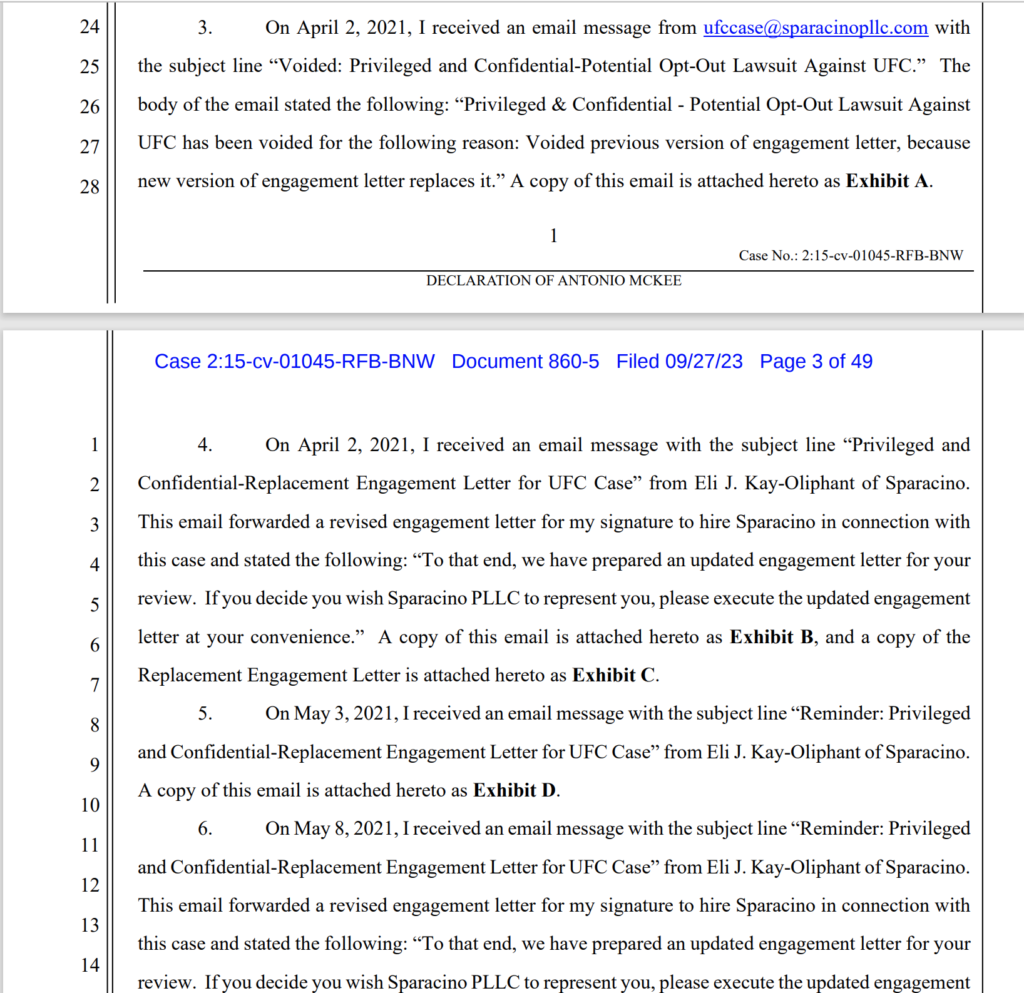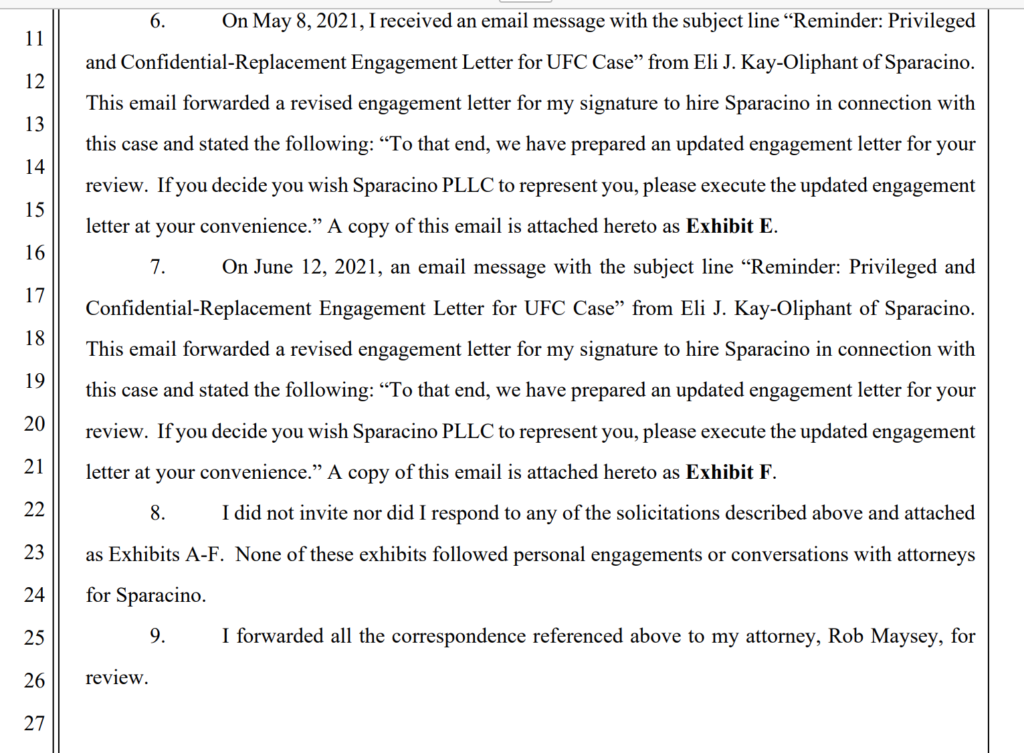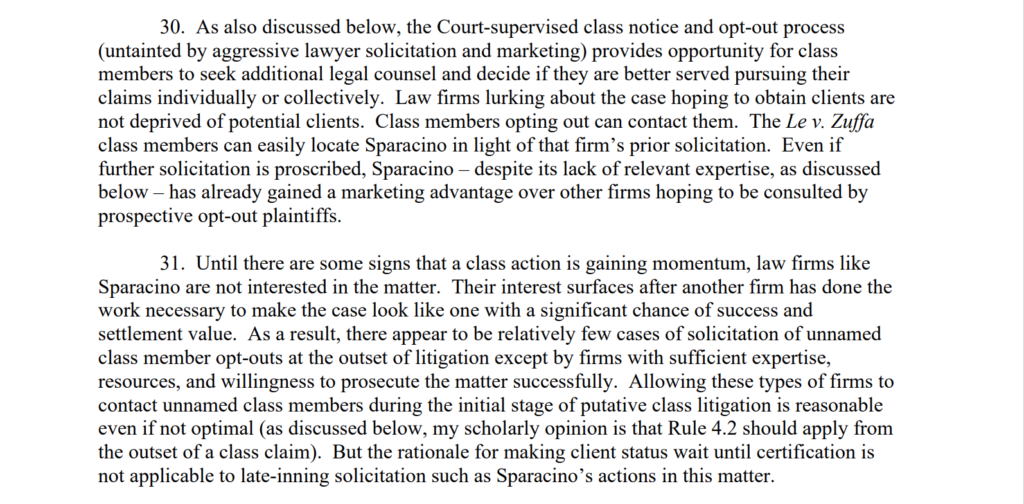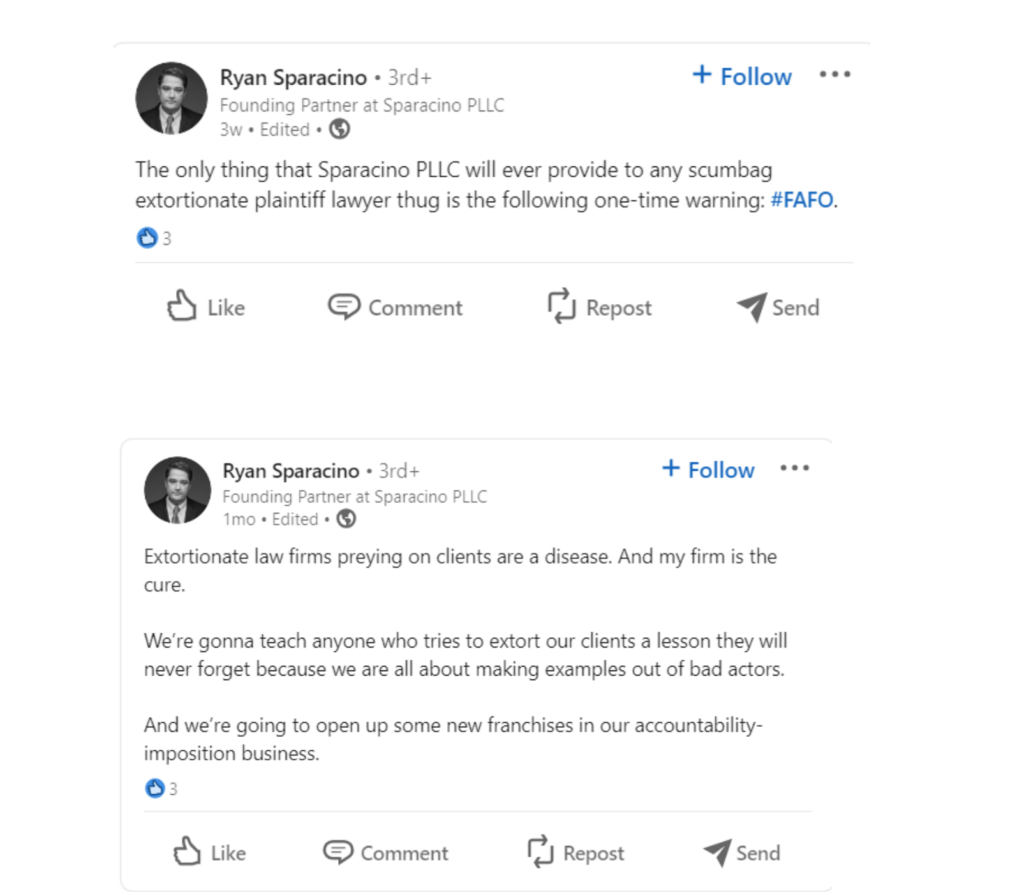Plaintiffs in the UFC lawsuit came out swinging against the Sparacino, PLLC (“Sparacino”) accusing the firm of attempting to swoop in and take clients, committing attorney ethics violations and taking at a shot at the firm’s found via his LinkedIn.
The Plaintiffs representing Cung Le and the class of individuals that originally brought the lawsuit against the UFC for alleging anti-competitive business practices. When Judge Richard Boulware initially indicated that he would grant class status to the plaintiffs at least two law firm contacted members of the class to attempt to retain them for the litigation. After receiving word that this was happening, lawyers for the plaintiffs requested that the firms cease contacting the class members. But, Sparacino continued to contact potential clients for the lawsuit to the displeasure of plaintiffs’ counsel.
As a result, the plaintiffs requested that the Court issue an Order precluding this from happening. This motion was continued until the Court issued a written Order.
In August, after Judge Boulware issued his Order granting class cert to the ’bout class’ plaintiffs. After a status conference discussion the plans for a trial, the Court also requested resolution of the matter by the plaintiffs by October 23. Instead of waiting, Sparacino initiated the issue with a request to the Court that it is allowed to solicit clients.
The plaintiffs filed an opposition to the firm’s motion for relief. In the response it includes a declaration from Antonio McKee indicating that he received multiple unsolicited emails from Sparacino and a letter sent to Sean Sherk. Both are represented by the plaintiffs’ lawyers.


It also included a Declaration from a Jeffrey Stemple, a UNLV Law Professor which refutes the declaration of the Sparacino expert. In addition to his opinion that Sparacino committed ethical violations, he opined that the firm was not qualified this type of legal work.
Below, the professor from UNLV indicates that Sparacino may have committed an ethical violation.

In his declaration, the professor opines that the Court-supervised class notice and opt-out process allows for members of the class “to seek additional legal counsel…” He also states that Sparacino “lack[s]…relevant expertise.” in this type of litigation. He infers that “law firms like Sparacino are not interested in the matter” until there are some sign that a class action is gaining momentum. Thus, he paints a picture as law firms waiting for a chance to pounce (“free rider”) at opportunities worked on by firms like the lawyers representing Le.

To give context on the behavior of Sparacino, the plaintiffs’ lawyers include LinkedIn comments made by Sparacino. This is in response to the inference made in Sparacino’s papers that claimed misconduct on the part of plaintiffs’ counsel. In the posts, Ryan Sparacino refers to a plaintiff lawyers as a “scumbag extortionate plaintiff lawyer thug.” The comments do not frame the issue, only that it makes the founder of the firm look bad.

Payout Perspective:
There is obvious bad blood between the lawyers that are (and attempting to retain more) representing class members in the lawsuit. Certainly, plaintiffs’ counsel has devoted time, energy and effort into this case since its inception. But does it infringe on the rights of the class members to seek an attorney of their own? Moreover, do class members have to affirmatively look for one or can they receive solicitations like the ones received by Sparacino’s firm. Or, can an outside firm that has not done any work come in and represent a class member? It would be up to the class member to decide. It would appear that the fees associated with represention may differ but that is a subject to be discussed between attorney and client. The matter seems to be teed up to be determined sooner than later and certainly something Judge Boulware could decide regardless of what the Ninth Circuit may do.


Leave a Reply